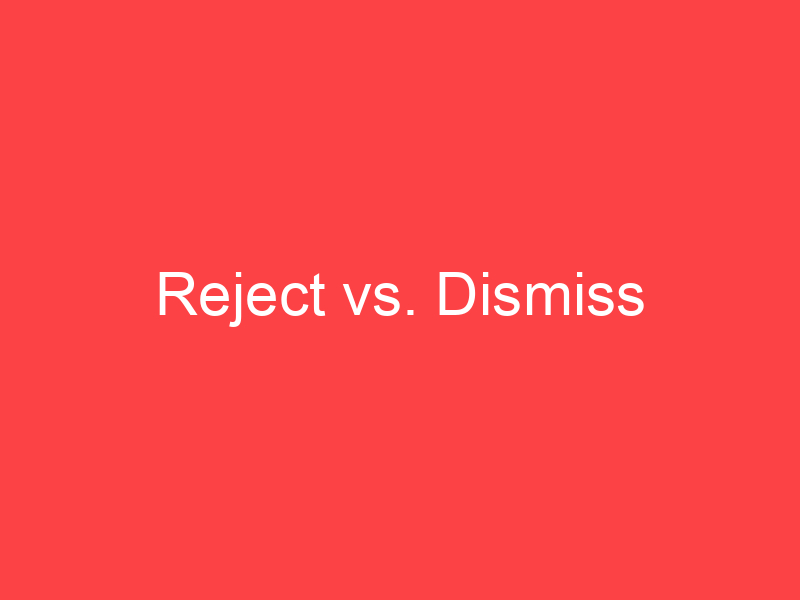-
Reject (verb)
To refuse to accept.
“She even rejected my improved offer.”
-
Reject (verb)
To block a shot, especially if it sends the ball off the court.
-
Reject (verb)
To refuse a romantic advance.
“I’ve been rejected three times this week.”
-
Reject (noun)
Something that is rejected.
-
Reject (noun)
An unpopular person.
-
Reject (noun)
a rejected defective product in a production line
-
Dismiss (verb)
To discharge; to end the employment or service of.
“The company dismissed me after less than a year.”
-
Dismiss (verb)
To order to leave.
“The soldiers were dismissed after the parade.”
-
Dismiss (verb)
To dispel; to rid one’s mind of.
“He dismissed all thoughts of acting again.”
-
Dismiss (verb)
To reject; to refuse to accept.
“The court dismissed the case.”
-
Dismiss (verb)
To send or put away.
“She dismissed him with a wave of the hand.”
-
Dismiss (verb)
To get a batsman out.
“He was dismissed for 99 runs.”
-
Dismiss (verb)
To give someone a red card; to send off.
-
Dismiss (verb)
order or allow to leave; send away
“she dismissed the taxi at the corner of the road”
-
Dismiss (verb)
remove from employment or office, typically on the grounds of unsatisfactory performance
“the prime minister dismissed five members of his cabinet”
-
Dismiss (verb)
(of a group assembled under someone’s authority) disperse
“he told his company to dismiss”
-
Dismiss (verb)
end the innings of (a batsman or a side)
“Australia were dismissed for 118”
-
Dismiss (verb)
treat as unworthy of serious consideration
“it would be easy to dismiss him as all brawn and no brain”
-
Dismiss (verb)
deliberately cease to think about
“he suspected a double meaning in her words, but dismissed the thought”
-
Dismiss (verb)
refuse further hearing to (a case)
“the judge dismissed the case for lack of evidence”

